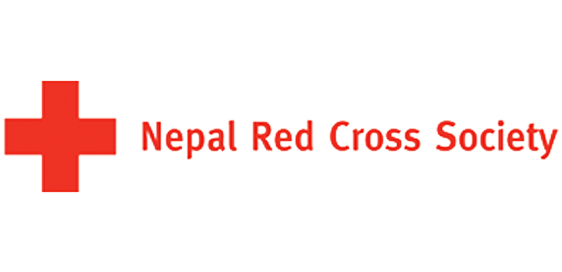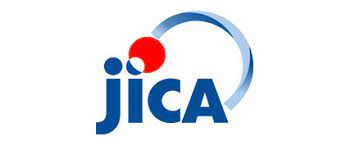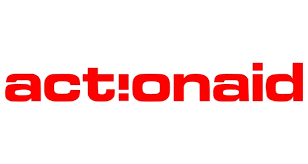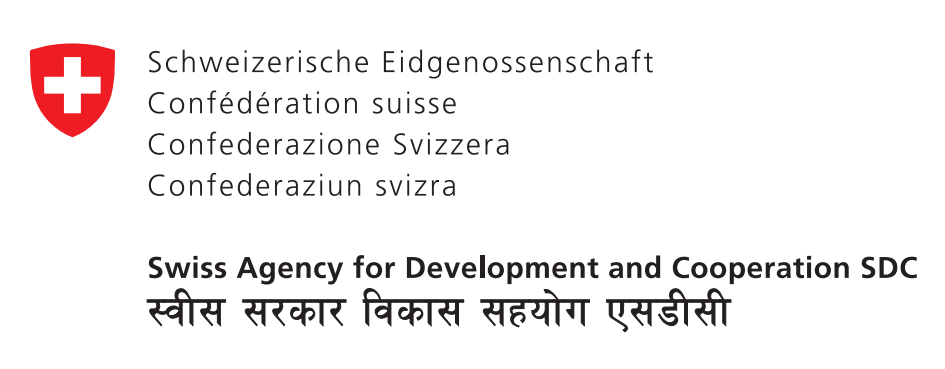Nepal Red Cross Society | Tailoring her way out of financial trouble
Mina Chhinnotola, a single mother from Bhaktapur Municipality-2, used to survive on daily wages before the Covid-19 lockdown was announced to contain the spread of the disease. Following the lockdown, she lost her job, which was her only means to earn a living for her four-member family. As she stayed home, she felt as if she were falling deeper into the whirlwind of fear and hardship.
The hungry faces of her children shook her to the core. The little money she had managed to save was spent on buying rice for her family. One night, before going to bed, Mina stumbled upon a sewing machine– wrapped in a yellow shawl. The machine was provided by Nepal Red Cross Society (NRCS) by identifying her skill in tailoring. In 2019 when she was supported with a sewing machine, she was identified as one of the vulnerable members of the community having the limited financial support to sustain. It was then that the idea of sewing face masks came to her mind. The next morning, she bought the necessary materials and started sewing face masks.

She used the money she received by selling the masks to buy essentials for her family. These days, she is busy in her tailoring work and encourages other members of her community to start something on their own. “Now I can help people just the way the Red Cross helped me. I can earn money as well,” she said with a smile on her face. With her skill and support from the Red Cross, Chhinnotola was able to meet her family’s basic needs. Realizing the importance of face masks and the needs of the people, she has been distributing face masks free of cost to elderly people.
Sharing her plans, she says, “I will buy more clothes and sew more masks. I will give half of them to the elderly people until the coronavirus pandemic is over.” She is thankful to the Red Cross, “It was with the Red Cross’s help that my family survived the lockdown. Now my financial condition is stable. So I want to help the needy.”
Swiss Cooperation | Munna now runs her own business
Though her husband has worked abroad for 12 years, he has barely made enough to sustain the household. That was why 38-year-old Munna Biswokarma from Nawalparasi had given up on her dreams of having a better life. Munna’s husband initially started working in the United Arab Emirates, where he slogged for five years. He then moved to Saudi Arabia, where he continues to work, but the money he makes is barely enough to make Munna’s dream of being financially stable come true.
Every month she struggled to make ends meet, educate her children and also pay for her father in-law’s medical expenses. She had also opened a beauty parlor hoping to support her family better, but due to lack of investment and time, her business did not flourish. In December 2020, Munna heard about the financial literacy class in her community. Interested to learn more, she registered herself in the sessions. In the financial literacy class, she learned about investment, the importance of saving money, and also the basics of doing business. She also gained knowledge about managing household expenses.
With the experience she received from the financial literacy class, Munna sold her parlor and invested in goat rearing. She says, “The things I learned during the classes not only gave me knowledge but also confidence. So, I sold my beauty parlor, took out additional loans, and established a farm.” During the classes, Munna had also learned about registering small businesses at the municipality.
She instantly did that for her own farm. She shares, “After registering my business, I also received a grant of Rs 45,500, which was very helpful. I am now a proud owner of 20 goats.” She has now also convinced her husband to return home and support her in goat farming. “My husband is happy with what I am doing here. He also plans on returning home to expand the business. I don’t think this would have been possible had I not attended the financial literacy classes,” says Munna. Financial literacy classes are part of a package designed for households and women left behind by migrant workers.
It is a package of 24 modules completed over six months, which empowers women on various dimensions of finance. Financial literacy is a component of the Safer Migration (SaMi) program—a joint initiative of the Governments of Nepal and Switzerland with technical assistance from Helvetas Nepal. SaMi works in collaboration with all three spheres: national, provincial, and local governments to ensure migrant workers and their families are better protected by the democratic institutions of Nepal.
JICA | Mobile masons build back better
Resham Binita Bhujel lost her house and her husband in 2015, the year Nepal was struck by an earthquake. “When the earthquake hit, we lost our small house but luckily, all our lives were spared. We were struggling to feed ourselves when my husband met with an accident. Suddenly I was a widow, a single mother, and the sole breadwinner of a family of five,” the resident of Sangahachowk, Sindhupalchowk shares.
“For three years, we were living in a shed and it was difficult to feed my children with the little money I made. It was a relief to be selected by JICA as a vulnerable household beneficiary. The mobile masons helped us to build our house brick by-brick, which is stronger and will not collapse even if another earthquake hits.” JICA has supported almost 56,000 household beneficiaries such as that of Bhujek in Gorkha and Sindhupalchowk by providing technical assistance and financial help in building seismic-resistant houses.

Under JICA’s Community Mobilization Program, mobile masons, also known as “local engineers”, received expert training in seismic-resistant building. They then supervised the construction of houses in the two districts. Bhujel, who was trained as a mobile mason as well, benefited from the program in man ways. “I can work for almost 5-6 days a month and receive a monthly allowance from the government.
All my children go to school every day; I am hopeful that they will study till high school and secure a job in the future,” says Bhujel. “When the earthquake hit, our old house which was made of only mud and stones was crushed to the ground. When our children came running through the dust, we were very relieved to have lived through the disaster but worried about not having a shelter anymore.”
“I lost my job and had no way to feed my family of six. When JICA began the mobile mason training, I trained to become equipped with the knowledge of building earthquake-resistant houses. I began working as a mobile mason and rushed to complete the construction of my house to shelter my family.” Since then, Bhujel has helped build almost two dozen houses in her village. She now has a disaster-proof house, a stable source of income and her children also go to schools built by JICA.
ActionAid Nepal | Indigenous skill empowers women
Geeta Devi, a resident of Nageswari village is one of the women preserving the unique skill of intricate pattern making. The village in Tehrathum District, Province 1, consists of 26 households with the majority belonging to the indigenous community. The village lies on the border of the district due to which its problems and issues often go unnoticed and the people are deprived of information and facilities provided by the local government as well as the other organizations.
The area is quite dry and lacks irrigation facilities. This has made life difficult for its residents, including women who are deprived of opportunities to become economically independent. Women from this community possess indigenous skills of weaving cotton and making fabric out of it. Only women from the older generation possess this skill and if it is not passed to the new generation, it will be wiped out from the community.
Geeta Devi remembers her first weaving experience, “During that time only a handful of women had this skill. I always saw my motherin-law and sister-in-law get busy all day weaving cotton to make beautiful fabrics. I got inspired by them and learned this amazing skill. Initially, it was just out of interest, but now it has become the source of our family income.” “Cotton requires less water and grows well on dry land. After receiving cotton seeds from ActionAid Nepal (AAN) and Deurali Society (AAN partner organization), we started to grow cotton and it really grew well,” she shares.

“Through a reflect circle (an empowerment group), AAN also trained members of the group. I trained 15 women/girls to process cotton as well as weave fabrics. AAN also provided required equipment for weaving, which has been installed in the community building. It has made the weaving easier.” A reflect circle was formed in coordination with the local partners. The group included one member each from 26 households. Initially, the meetings were conducted weekly to identify potential areas for economic development, and cotton farming, as well as weaving.
AAN provided support of Rs 23,930 to procure cotton seeds. Cotton farming was first started in 11,192.28 sq meter of land. As production of cotton increased, residents wanted weaving equipment. AAN then provided Rs 30,560 to buy the required weaving equipment. Fifteen people were provided three months of training in cotton processing. The cotton fabric is called “khadi” in the local language.
“I am glad that I can contribute to preserve the indigenous skills of our community and transfer them to the new generation. Through cotton farming and weaving, I earn about Rs 150,000 annually which is three times more than what I could earn from farming. My husband and children help me by growing cotton, harvesting, processing, weaving, and selling. I feel this is more like teamwork. All the villagers can make more money from this if we can draw the attention of the local government in promoting farming, developing a good marketing strategy, and bringing innovation in the fabric-making process”.




















